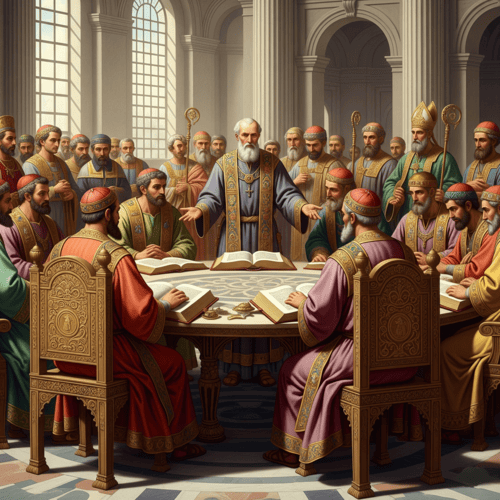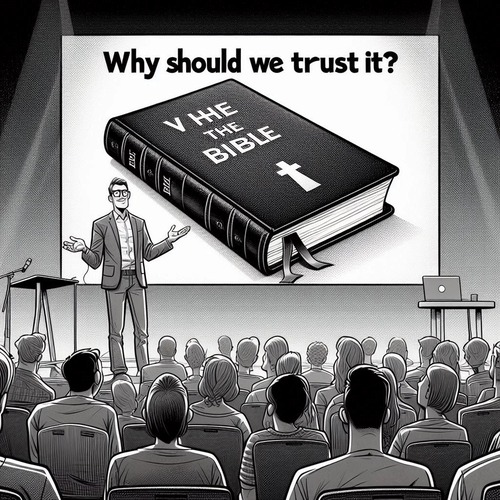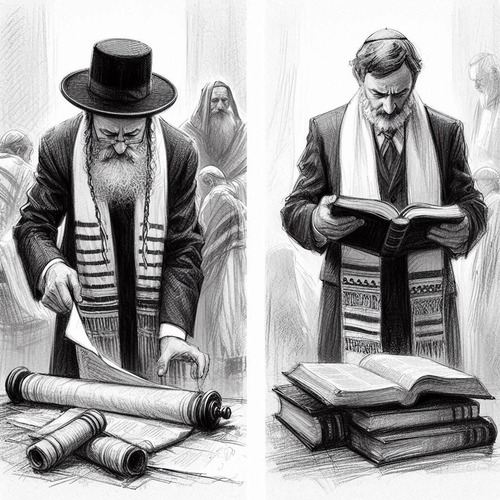The Council of Nicaea: Uncovering Its History and Impact
THE NICENE CREED’S ENDURING RELEVANCE FOR THE CHURCH
The year was 325 AD: a pivotal moment in Christian history. In the bustling city of Nicaea (modern-day Iznik, Turkey), nearly 300 bishops from across the Roman Empire gathered to address a crisis that had threatened to tear the young, newly legalised church apart. What emerged from their deliberations wasn’t merely a theological statement, but a confession of faith that would unite Christians across centuries and continents.
In God’s sovereign providence, the council would produce the Nicene Creed—a treasure that continues to serve the global church today.
THE CRISIS THAT DEMANDED GOD’S INTERVENTION
The controversy began with Arius, a charismatic presbyter from Alexandria, whose teaching struck at the very heart of the Christian faith. Arius proclaimed that Jesus Christ, while exalted above all creation, was nonetheless a created being—subordinate to the Father and not truly divine. His memorable slogan, “There was when he was not,” captured the essence of his heresy: Christ had a beginning, making Him fundamentally different from the eternal Father.
This wasn’t merely an academic debate confined to theological schools. Arianism spread like wildfire throughout the empire, dividing congregations and threatening the unity that Emperor Constantine had hoped Christianity would bring to his realm. Entire regions embraced Arian teaching, while others firmly rejected it, creating a schism that reached from the imperial court to local parish churches.
From a Reformed perspective, we recognise the crisis wasn’t accidental or merely the result of human theological curiosity gone wrong. God, in His sovereign wisdom, allowed the challenge to arise precisely when the church needed to articulate with crystal clarity the biblical truth about Christ’s divine nature. As Scripture teaches us, “all things work together for good” (Romans 8:28), and even theological controversies serve God’s purposes in strengthening and purifying His church.
The stakes couldn’t have been higher. If Christ were merely a created being, however exalted, He couldn’t accomplish the salvation that Scripture promises. Only true God can bear the infinite weight of sin and provide genuine redemption. The Arian controversy thus threatened not just theological precision, but the very gospel itself.
THE COUNCIL CONVENES: TRUTH EMERGES FROM CONFLICT
When Constantine summoned the bishops to Nicaea in 325 AD, he likely expected a quick resolution to restore imperial unity. Instead, God orchestrated something far more profound. The assembled bishops, representing diverse theological traditions and cultural backgrounds, found themselves united around the non-negotiable truths of Scripture.
The Arian party came prepared with biblical quotations and sophisticated arguments. They cited passages where Jesus seemed subordinate to the Father or where His humanity appeared prominent. Their presentation was compelling, even persuasive to some. But the orthodox bishops, led by figures such as the young deacon, Athanasius and guided by Constantine’s advisor Hosius of Córdoba, recognised isolated Bible verses, torn from their broader scriptural context, could be made to support almost any position.
Here we see a principle that would later become central to Reformed theology: Scripture must interpret Scripture. Individual passages must be understood within the Bible’s overall revelation about Christ’s person and work. When the full biblical witness was carefully considered—from John’s declaration that “the Word was God” (John 1:1) to Thomas’s worship of the risen Christ as “my Lord and my God” (John 20:28)—the Arian position crumbled.
The bishops faced a crucial decision about language. The term they chose—homoousios, meaning “of one substance” or “of the same essence”—doesn’t appear in Scripture. Yet they recognised biblical truth sometimes requires precise theological terminology to guard against error. This principle would later guide Reformed confessional writing, where technical terms like “Trinity” and “imputation” capture biblical realities even when the exact words aren’t found in Scripture.
THE CREED’S FORMATION AND IMMEDIATE VICTORY
The resulting Nicene Creed was a masterpiece of theological precision. Every phrase was carefully crafted to reflect biblical teaching while explicitly rejecting Arian errors. The creed didn’t merely state that Christ was divine; it declared Him to be “very God of very God, begotten, not made, being of one substance with the Father.” This language left no room for Arian compromise or confusion.
The overwhelming consensus was remarkable—only two or three bishops refused to sign, and they were promptly exiled. God had used human deliberation and debate to produce clarity and unity around essential gospel truth. The church spoke with one voice, testifying to the biblical revelation of Christ’s full deity.
THE NICENE CREED’S ENDURING RELEVANCE FOR THE CHURCH
A Foundation Stone for Christian Orthodoxy: The Nicene Creed didn’t end theological controversy, but it established permanent boundaries for Christian discussion about Christ’s person. Later councils would build upon Nicaea’s foundation, addressing questions about Christ’s humanity (Chalcedon, 451 AD) and the nature of the Trinity (Constantinople, 381 AD). Each successive gathering demonstrated how good theology serves the gospel by protecting essential truths from distortion.
Reformed churches have consistently embraced the ancient creeds not as additions to Scripture, but as faithful summaries of biblical teaching. The Westminster Confession affirms that church councils, when they conform to God’s Word, deserve our respect and acceptance. The Nicene Creed represents the church’s collective wisdom in understanding and articulating scriptural truth about Christ’s divine nature.
Ecumenical Unity Across the Centuries: One of the most remarkable testimonies to God’s providence in the Nicene Creed is its universal acceptance across denominational lines. Eastern Orthodox, Roman Catholic, and Protestant churches all confess the same fundamental truths about Christ’s deity. When Reformed Christians recite the Nicene Creed alongside believers from other traditions, they participate in a testimony that spans 17 centuries and circles the globe.
This unity isn’t merely organisational or institutional—it’s theological and spiritual. The creed testifies to the “one holy catholic and apostolic church” that transcends human divisions and denominational boundaries. It reminds us our Reformed distinctives, however important, stand within the broader framework of biblical orthodoxy that we share with all true Christians.
CONTEMPORARY RELEVANCE AND APPLICATION
The Nicene Creed remains powerfully relevant for today’s church in several crucial ways.
- It continues to guard against Christological errors that persist in various forms. Whether confronting modern Arianism in cults such as Jehovah’s Witnesses or addressing more subtle compromises of Christ’s deity in liberal theology, the creed provides a time-tested standard of biblical truth.
- It serves as an invaluable tool for discipleship and education. New believers can learn essential Christian doctrine through memorising and meditating on its carefully crafted phrases. Parents can use it to teach their children the fundamental truths of the faith. Pastors can employ it in catechetical instruction, knowing they’re building on a foundation laid by the church’s greatest theologians.
- Many churches incorporate the creed into regular worship, connecting contemporary believers with the historical continuity of Christian faith. When congregations recite these ancient words, they join their voices with countless saints who have confessed the same truths across the centuries.
COUNCIL OF NICAEA: LESSONS FOR TODAY’S CHURCH
The story of Nicaea teaches us several vital lessons.
- Doctrinal precision matters for gospel proclamation. Truth isn’t the enemy of unity—rather, unity built on anything less than truth proves fragile and temporary. The Reformed commitment to confessional clarity reflects this principle, recognising that love for our neighbours requires theological accuracy in our teaching and preaching.
- We can trust God’s sovereignty even in the midst of theological controversy and church conflict. The same divine providence that brought good from the Arian crisis continues to work today. He uses even our struggles and disagreements to refine and strengthen the church’s witness.
- We must treasure our connection to the historical church. The Nicene Creed reminds us we’re not the first generation of Christians to face challenges or wrestle with difficult questions. We stand on the shoulders of faithful predecessors who, guided by Scripture and empowered by the Holy Spirit, have already fought many battles and won crucial victories for truth.
As we face our own theological challenges and cultural pressures, the Council of Nicaea and its enduring creed encourage us to remain faithful to Scripture, trust in God’s providence, and maintain our commitment to the truth that has been “once for all delivered to the saints” (Jude 3). In God’s sovereign plan, our generation’s faithfulness will likewise serve His church for centuries to come.
COUNCIL OF NICAEA: RELATED FAQs
Why did Emperor Constantine, who wasn’t even baptised until his deathbed, have such influence over the council? Constantine’s involvement reflects God’s providence working through imperfect human instruments. While his primary motivation was political unity rather than theological precision, his imperial authority provided the necessary framework for bishops to gather safely and deliberate freely. Reformed scholars like Carl Trueman note God often uses secular authorities to protect and advance His church’s interests, even when those rulers have mixed motives.
- What happened to the original Nicene Creed text, and how do we know what was actually decided? The original parchment from 325 AD has been lost to history, but the creed’s text was preserved through multiple ancient sources including church historians like Eusebius and Socrates Scholasticus. Interestingly, what most churches recite today is actually the expanded version from the Council of Constantinople (381 AD), which added crucial details about the Holy Spirit. This demonstrates how the early church continued to refine its theological expressions while maintaining core doctrinal commitments.
- Did all the bishops who attended actually understand the Greek philosophical terms being used? Many bishops, particularly those from Latin-speaking regions, struggled with the precise Greek terminology, especially homoousios (“of one substance”). Some initially worried that such philosophical language might compromise biblical simplicity. However, they eventually recognised defending biblical truth sometimes requires precise theological vocabulary that goes beyond Scripture’s exact wording—a principle that Reformed theology fully embraces in its own confessional tradition.
How do contemporary Reformed scholars view the Nicene Creed’s authority and relevance? Leading Reformed theologians like Michael Horton and Kevin Vanhoozer emphasise that the creed’s authority is derivative—it commands respect only insofar as it faithfully summarises Scripture. Sinclair Ferguson highlights how the creed serves as a “rule of faith” that helps churches maintain doctrinal boundaries across cultures and generations. These scholars see the creed not as adding to biblical revelation, but as providing a time-tested framework for understanding essential Christian truths about Christ’s person and work.
- Were there any significant theological voices who opposed the Nicene decision but weren’t necessarily Arian? Indeed, several bishops held “semi-Arian” or “homoiousian” positions, arguing that Christ was “of similar substance” (homoiousios) rather than “of the same substance” (homoousios) as the Father. They feared identical substance language might lead to modalism or compromise the Father’s unique role. History proved, however, that such middle positions ultimately couldn’t maintain Christ’s true deity while avoiding Arian subordinationism—confirming the wisdom of Nicaea’s uncompromising biblical stance.
- How did the council’s decision affect Christian worship and liturgy in the early church? The Nicene Creed rapidly became central to Christian worship, particularly in baptismal ceremonies and regular liturgical services. Churches began incorporating explicitly Trinitarian doxologies and prayers that reflected the council’s theological clarity. This liturgical integration helped ordinary believers internalise orthodox doctrine through repeated confession and song, demonstrating how good theology naturally flows into faithful worship—a connection that Reformed churches continue to emphasise today.
What role did the Holy Spirit’s guidance play in the council’s deliberations from a Reformed perspective? Reformed theology recognises that while the Holy Spirit guided the council toward biblical truth, this wasn’t through new revelation but through illuminating Scripture’s existing testimony about Christ. John Frame and other Reformed scholars emphasise the Spirit works through ordinary means—careful Bible study, theological reflection, and corporate discernment—rather than through mystical inspiration. The council’s success demonstrates how the Spirit continues to lead the church “into all truth” (John 16:13) by helping believers better understand the Word He originally inspired.
COUNCIL OF NICAEA: OUR RELATED POSTS
Editor’s Pick

Testament to Design: The Engineering Marvel of Elephants
Picture an African elephant delicately plucking a single acacia leaf with the tip of its trunk, then moments later using [...]

Blue Whales: Mammoth Icons of Intelligent Design
Imagine an animal so massive its heart alone weighs as much as a small car, yet so precisely engineered it [...]

Do Unbelieving Kids Disqualify Church Leaders?
REFORMED PERSPECTIVES ON 1 TIMOTHY 3 AND ELDER QUALIFICATIONS Every pastor knows the heartbreak. A faithful elder who has served [...]
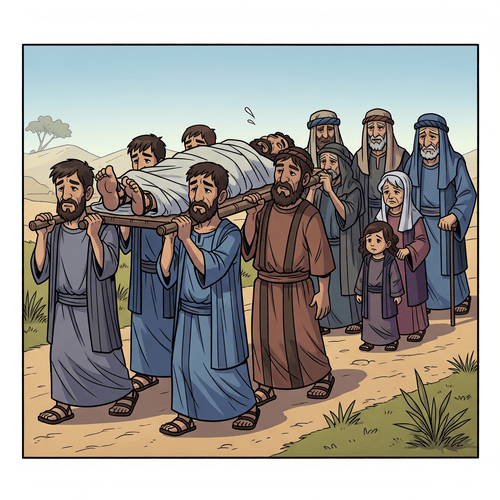
Why Did God Kill Onan? Wasn’t the Punishment Disproportionate?
The story of Onan in Genesis 38 troubles many. Why would God strike down a man for what seems like [...]

Is God Preparing Me for Ministry? How May I Know for Sure?
The question haunts many faithful believers. You’re serving faithfully in your local church, perhaps teaching Sunday school or leading a [...]
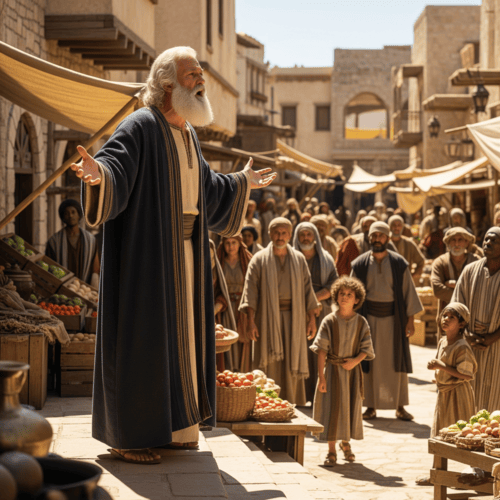
Ephesians 1:13: Was the Spirit’s Indwelling Promised of Old?
When Paul declares believers are “sealed with the promised Holy Spirit” in Ephesians 1:13, one word jumps off the page: [...]
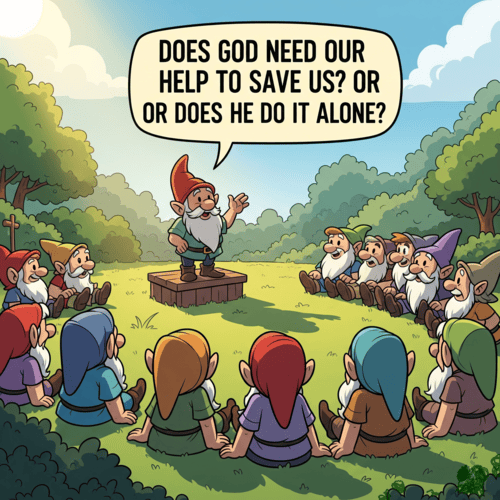
Monergism vs Synergism: Is Salvation God’s Work Alone?
When God saves us, does He do it alone, or does He need our help? The question isn’t mere theological [...]

Was Jesus Abandoned by the Father on the Cross?
WHY WE ANSWER IN THE NEGATIVE “My God, my God, why have you forsaken me?” These words from the cross [...]

Why Do Some Respond to God’s Call While Others Don’t?
THE REFORMED VIEW ON OUTWARD AND INWARD CALLS EXPLAINED Picture this: Two neighbours attend the same church service. They hear [...]

Does Ocean Salt Content Prove a Young Earth?
A COMPELLING LOOK AT MARINE CHEMISTRY AND EARTH’S TIMELINE The Salt Question That Challenges Deep Time: If Earth’s oceans have [...]

